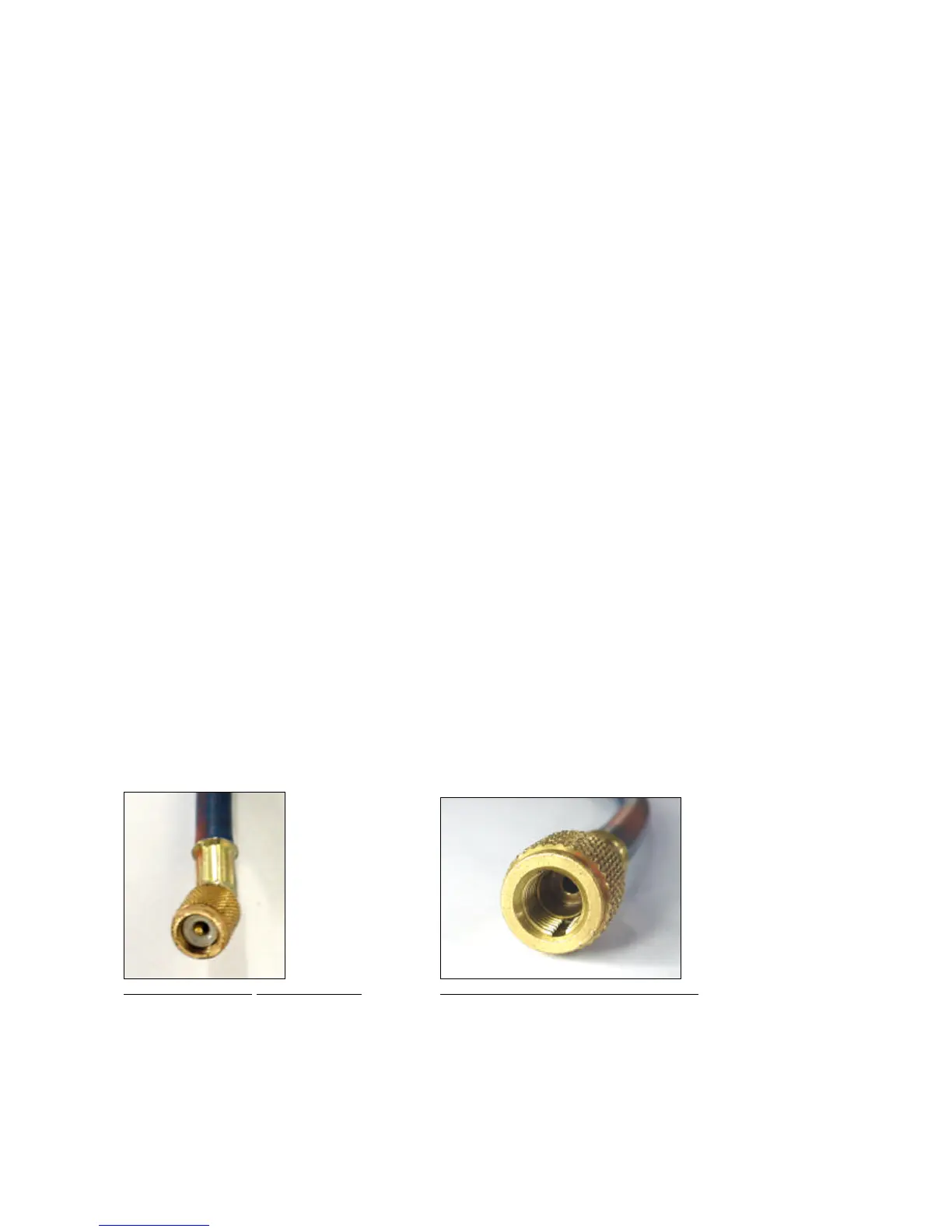108
GUIDELINES OF FIELD-CHARGING AIR CONDITIONING SYSTEMS WITH SCROLL
COMPRESSORS
These guidelines are intended for use with Scroll compressors only with R22, R407C, R134a, R404A, R507,
and R410A refrigerants. They do not apply to reciprocating compressors or competitive Scroll compressors.
FIELD-CHARGING – SOME PRECAUTION POINTS
Scroll compressors have a very high volumetric efficiency and quickly pump a deep vacuum if there is
insufficient refrigerant in the system or if refrigerant is added too slowly. Operation with low suction pressure
will quickly lead to very high discharge temperatures. While this process is happening, the scrolls are not
being well lubricated – scrolls depend on the oil mist in the refrigerant for lubrication. A lack of lubrication
leads to high friction between the scroll flanks and tips and generates additional heat. The combination of
heat of compression and heat from increased friction is concentrated in a small localized discharge area
where temperatures can quickly rise to more than 300°C. These extreme temperatures damage the Scroll
spirals and the orbiting Scroll bearing. This damage can occur in less than one minute especially on larger
compressors. Failure may occur in the first few hours or the damage done during field charging may show up
some time later.
Other typical field charging problems include undercharging, overcharging, moisture or air in the system etc.
In time each one of these problems can cause compressor failure.
EQUIPMENT
Minimal equipment is required for field charging. The minimum equipment required to do a satisfactory job
is:-
Set of service gauges
Hoses
Vacuum pump
Vacuum gauge
Scales
Thermometer
CHARGING HOSES
Most field-charging is done using standard service hoses. Hoses are made in different colors with different
working pressures and with different leak rates but the most important point is the presence or absence of
Shredder valve depressors. Shredder valve depressors severely restrict the flow through the service hoses.
This slows evacuation and vapor charging dramatically. In most cases the Shredder depressor can be
removed but it is simpler to have one set of hoses with and one set without Shredder depressors.
Hose with Shredder valve Depressor Hose without Shredder valve Depressor
Hose selection is important depending whether the system is being evacuated or charged. Charging liquid
from the cylinder into the liquid line should be carried out using an open hose connected to an unrestricted
fitting. This will reduce charging time.
Typical service valves found on the
Shredder Valves

